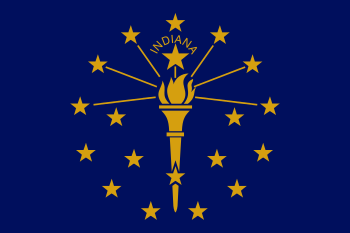William Cumback
William Cumback (March 24, 1829 – July 31, 1905) was a U.S. Representative from Indiana.
_BHL4948945.jpg)
Born near Mount Carmel, Indiana, Cumback attended the common schools and was graduated from Miami University, Oxford, Ohio. He taught school two years. He studied law at the Cincinnati Law School. He was admitted to the bar and commenced practice in Greensburg, Indiana, in 1853.
Cumback was elected as an Indiana People's Party candidate to the Thirty-fourth Congress (March 4, 1855 – March 3, 1857). He was an unsuccessful candidate for reelection in 1856. He resumed the practice of law. He was appointed a paymaster in the Army and served throughout the Civil War. He served as member of the State senate in 1866. The 16th Lieutenant Governor of Indiana in 1868. He was an unsuccessful candidate for election to the United States Senate in 1869. President Grant nominated Cumback as the U.S. Minister to Portugal in 1870 but he declined the appointment. United States revenue collector 1871-1883. Trustee of DePauw University, Greencastle, Indiana. He was an unsuccessful candidate for nomination for governor in 1896. He died in Greensburg, Indiana, July 31, 1905. He was interred in South Park Cemetery.
William Cumback is the namesake of the community of Cumback, Indiana.[1]
Notes and references
- Baker, Ronald L. (October 1995). From Needmore to Prosperity: Hoosier Place Names in Folklore and History. Indiana University Press. p. 107. ISBN 978-0-253-32866-3.
...and named for Hoosier politician William Cumback.
- United States Congress. "William Cumback (id: C000980)". Biographical Directory of the United States Congress.
| Political offices | ||
|---|---|---|
| Preceded by Conrad Baker |
Lieutenant Governor of Indiana 1869 – 1873 |
Succeeded by Leonidas Sexton |
| U.S. House of Representatives | ||
| Preceded by James H. Lane |
Member of the U.S. House of Representatives from Indiana's 4th congressional district 1855-1857 |
Succeeded by James B. Foley |
![]()


